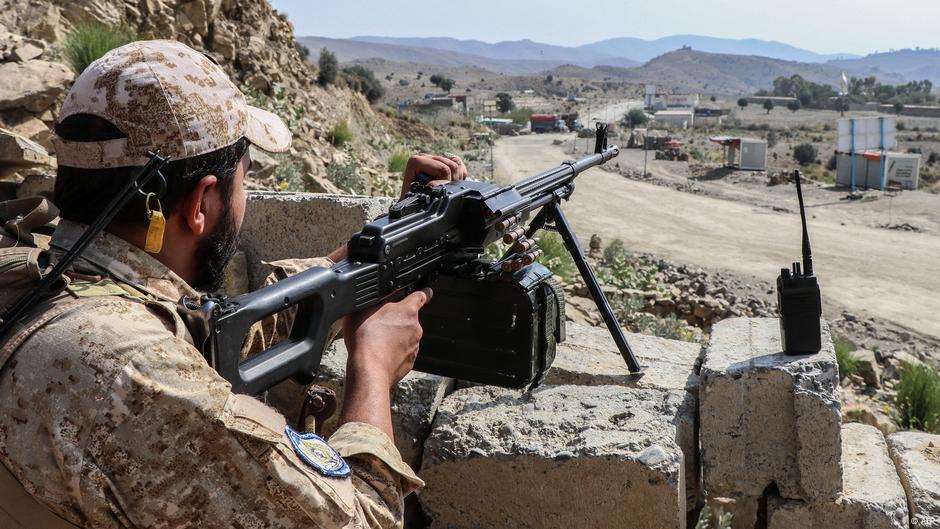The next round of truth-telling between Pakistan and the Taliban regime in Kabul is scheduled to take place in Istanbul on November 6. Following intense border clashes last month, the two sides are trying to reach a peace deal brokered by Türkiye and Qatar.
A deadly cross-border conflict erupted after the Taliban blamed Pakistan for the October 9 blasts in the Afghan capital Kabul. The Taliban said Pakistani forces had bombed several targets, including inside the city.
By the time Türkiye and Qatar signed a ceasefire, more than 70 people had been killed and hundreds injured in clashes between Taliban fighters and Pakistani forces.
Last week, Turkey said a monitoring mechanism would be set up to ensure peace and punish violations of the agreement.
“However, many technical questions remain unanswered,” said Omar Samad, an expert at the New America Foundation think tank in Washington. Samad served as the Afghan Ambassador to Canada and France from 2004 to 2011.
“Who should monitor compliance with the ceasefire: a third country or an international organization? Deep mistrust between Kabul and Islamabad, historic border conflicts and differing definitions of terrorism further complicate negotiations,” he told DW.
Pakistani Taliban – the main obstacle
Relations between the former allies, which share a 2,600-kilometre (1,600 mi) border, have deteriorated significantly in recent years.
Islamabad has accused Kabul of providing security to the terrorist group Tehreek-e-Taliban Pakistan (TTP) – an offshoot of the Taliban in Pakistan. Taliban rulers in Kabul deny this.
The number of attacks and attacks in Pakistan has increased since the Taliban took power in Afghanistan in 2021. Pakistan has been carrying out cross-border air strikes on suspected TTP hideouts in eastern Afghanistan since last year to put pressure on the Taliban rulers.
According to the Taliban, at least 46 people, including women and children, were killed in attacks by fighter planes and drones in late December 2024.
Afghan political analyst Ahmed Saeed warned, “If the talks fail, there is a risk of full-scale war between the two countries.” He said the TTP “has pledged allegiance to the Taliban leader in Afghanistan and has put forward a common ideology.”
However, the Taliban regime insists that TTP fighters are opponents of the Pakistani government and have nothing to do with them.
Taliban regime is looking for new friends
In August 2021, Pakistan’s political leadership initially welcomed the return of the Taliban to power in Afghanistan. They saw the Taliban as a potential strategic ally in the region. But this enthusiasm could not last long.
“Pakistan hopes to increase its influence after the Taliban seize power in Afghanistan,” Saeed said.
He said, “The Taliban are striving for sovereignty and recognition by other countries and powers in the region like India. And they will not label the TTP, whose fighters fought against the Americans and the Republic of Afghanistan, as terrorists.”
civilians caught in the middle
Meanwhile, pressure on Afghans in Pakistan has increased dramatically. Police raids on businesses run by Afghans and apartments rented by them have increased not only in the border areas, but also in Islamabad and other major cities.
“We are in hiding and our families are divided, unable to stay in one place for fear of arrest and police violence. Our businesses have ground to a halt, our children have dropped out of school and we don’t have time to consider our next step,” an Afghan national who wished to remain anonymous told DW.
Many Afghans in Pakistan fear consequences such as their leases not being renewed or problems arising in the visa process, which is already expensive, uncertain and often lengthy.
The border between Afghanistan and Pakistan has been closed for more than two weeks and is being opened only to deport Afghan migrants. According to Taliban officials, 8,000 Afghan migrants were deported to Kandahar province from the Spin Boldak border crossing over the weekend.
With reporting by Ahmed Waheed Ahmadi.
This article was translated from German.






Leave a Reply